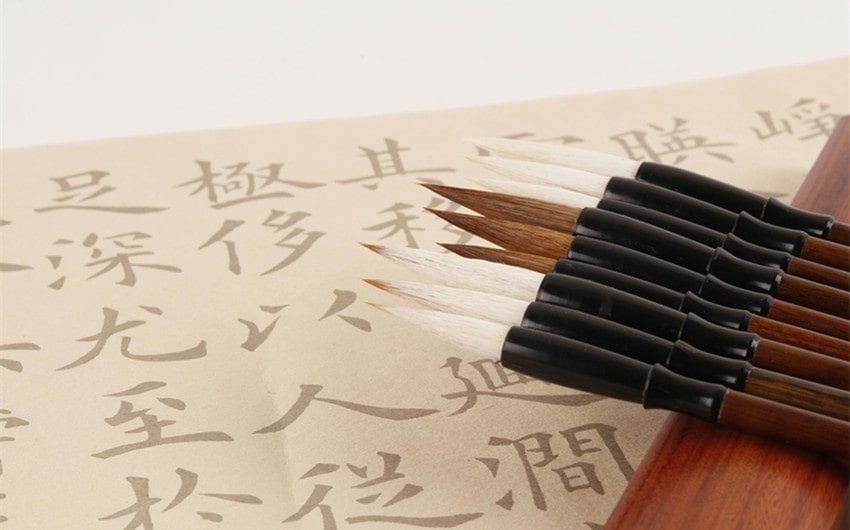146 Inspiring Chinese Male Names with Rich Meanings
Choosing the perfect name is a meaningful tradition in many cultures, and Chinese male names are no exception. Each name carries a deep significance, often reflecting virtues, nature, or family history. Whether you’re exploring traditional names or modern trends, the beauty of Chinese male names lies in their ability to convey a unique story through just a few characters.
From names inspired by strength and wisdom to those rooted in nature, understanding the meaning behind these names can help you appreciate the rich cultural heritage they represent. Let’s dive into the world of these timeless and impactful names.
The Structure of Chinese Male Names

Chinese male names follow a unique structure that reflects both the individual and their family heritage. Understanding this structure is key to appreciating the deeper meaning behind each name.
1. Family Name (Surname) First
In Chinese culture, the family name, or surname, is always placed first. This emphasizes the importance of family and lineage over the individual. The family name is typically one syllable and passed down from generation to generation, symbolizing the continuity of the family line. Some of the most common Chinese surnames include Li (李), Wang (王), and Zhang (张). These surnames hold deep historical roots and often link the person to a specific region or ancestry.
Example: If a man’s family name is Li (李), it would be the first part of his full name, followed by his given name.
2. Given Name (First Name)
The given name follows the family name and can be one or two characters. This part of the name is more personal, reflecting the parents’ hopes, virtues, or aspirations for their child. Given names can have a wide range of meanings, often drawing from nature, virtues, or traditional values. For example, Jun (俊) means “handsome” or “talented,” while Wei (伟) means “great” or “mighty.” The choice of characters for the given name often involves careful consideration and may reflect the family’s desires for the child’s future.
Example: If the given name is Wei (伟), the full name would be Li Wei (李伟), where “Li” is the family name, and “Wei” is the given name.
3. One-Character vs. Two-Character Given Names
Given names in Chinese can be either one character or two characters long. A one-character given name is concise and straightforward, while a two-character given name allows for more creative expression and layered meaning. The two characters in a two-character name often complement each other to form a more complex or nuanced meaning.
For example:
- Wei (伟) is a strong one-character name meaning “great” or “mighty.”
- Jianwei (建伟) is a two-character name where “Jian” means “build” or “establish,” and “Wei” means “great,” creating the idea of someone who builds greatness.
The use of two characters allows for more symbolic meaning, combining different qualities or aspirations into a single name.
4. The Use of Generational Names
In some traditional Chinese families, particularly in more rural or older generations, there is a practice of using generational names. These are shared by all male (or female) members of the same generation within a family, ensuring a stronger familial bond. For example, all male cousins in the same generation might share the character Yong (永), meaning “eternal” or “forever,” with a different second character to distinguish their individual names.
Example: The generational character could be Yong, so names might include Yongming (永明) and Yonghao (永浩), where “Yong” ties them to the same generation.
Chinese Male Names Examples

Popular Chinese Male Names
- Wei (伟) – Means “great” or “mighty,” symbolizing strength and importance.
- Lei (磊) – Means “rock” or “stone,” representing steadfastness.
- Ming (明) – Means “bright” or “clear,” suggesting intelligence and clarity.
- Jie (杰) – Means “outstanding” or “hero,” referring to greatness and talent.
- Yong (勇) – Means “brave,” representing courage and determination.
- Tao (涛) – Means “big waves,” symbolizing power and resilience.
- Bin (斌) – Means “refined” or “cultured,” representing sophistication.
- Hui (辉) – Means “brightness” or “splendor,” associated with greatness.
- Gang (刚) – Means “strong” or “unyielding,” symbolizing toughness.
- Liang (亮) – Means “bright” or “shining,” referring to someone with wisdom.
- Feng (峰) – Means “peak” or “summit,” symbolizing greatness or achievement.
- Jian (健) – Means “healthy” or “strong,” symbolizing vitality.
- Bo (波) – Means “waves,” representing fluidity and strength.
- Yu (宇) – Means “universe” or “cosmos,” symbolizing vastness and ambition.
- Chao (超) – Means “surpass” or “exceed,” representing excellence.
- Hao (浩) – Means “vast” or “immense,” symbolizing greatness.
- Ping (平) – Means “peace” or “calm,” representing harmony.
- Jun (军) – Means “army” or “military,” symbolizing discipline and strength.
- Cheng (成) – Means “achieve” or “accomplish,” representing success.
- Zhi (志) – Means “will” or “ambition,” symbolizing determination.
- Guang (光) – Means “light” or “glory,” symbolizing enlightenment.
- Xiang (翔) – Means “soar,” symbolizing ambition and freedom.
- Qiang (强) – Means “strong” or “powerful,” symbolizing physical and mental strength.
- Rui (瑞) – Means “auspicious” or “lucky,” symbolizing good fortune.
- Yi (毅) – Means “resolute” or “steadfast,” symbolizing strength of character.
- Ning (宁) – Means “peace” or “tranquility,” symbolizing calm and contentment.
- Jia (佳) – Means “excellent” or “good,” symbolizing beauty or goodness.
- Zhe (哲) – Means “wise” or “philosopher,” representing intelligence.
- Kai (凯) – Means “victory” or “triumph,” symbolizing success.
- Sen (森) – Means “forest,” symbolizing growth and vitality.
Traditional Chinese Male Names
- Tian (天) – Means “heaven” or “sky,” symbolizing greatness and divinity.
- Zhong (忠) – Means “loyalty,” symbolizing trust and devotion.
- Kun (坤) – Means “earth” or “land,” symbolizing stability and grounding.
- Da (达) – Means “reach” or “attain,” representing achievement and success.
- Hong (鸿) – Means “vast” or “great,” symbolizing greatness.
- Wen (文) – Means “literature” or “culture,” representing education and refinement.
- Fu (福) – Means “blessing” or “good fortune,” symbolizing prosperity.
- Ren (仁) – Means “benevolence,” symbolizing kindness and humanity.
- Xin (信) – Means “faith” or “trust,” symbolizing reliability.
- Qi (启) – Means “begin” or “enlighten,” symbolizing new beginnings.
- De (德) – Means “virtue” or “moral,” symbolizing high moral standards.
- Sheng (胜) – Means “victory,” symbolizing success and achievement.
- Yi (义) – Means “justice” or “righteousness,” symbolizing fairness.
- Bao (宝) – Means “treasure,” symbolizing something precious.
- Chen (晨) – Means “morning” or “dawn,” symbolizing new beginnings.
- Rui (睿) – Means “wise” or “clever,” symbolizing intelligence.
- Mu (木) – Means “wood” or “tree,” symbolizing growth and strength.
- Kang (康) – Means “healthy,” representing physical and mental well-being.
- Qiu (秋) – Means “autumn,” symbolizing harvest and maturity.
- Shan (善) – Means “good” or “kindness,” symbolizing virtue.
- Yue (岳) – Means “mountain,” symbolizing strength and stability.
- Lin (林) – Means “forest,” symbolizing growth and abundance.
- Yi (艺) – Means “art” or “skill,” representing creativity and talent.
- Qing (清) – Means “clear” or “pure,” symbolizing transparency and honesty.
- Jiang (江) – Means “river,” symbolizing flow and endurance.
- He (和) – Means “harmony” or “peace,” symbolizing balance.
- Ming (明) – Means “bright” or “clear,” symbolizing intelligence and wisdom.
- Chao (朝) – Means “dynasty” or “morning,” representing power and renewal.
- Han (汉) – Refers to the Han dynasty, symbolizing strength and heritage.
- Fang (方) – Means “square” or “honest,” symbolizing integrity and straightforwardness.
Modern and Trendy Chinese Male Names
- Yifan (逸凡) – Means “extraordinary” or “out of the ordinary.”
- Haoyu (浩宇) – Means “vast universe,” symbolizing ambition and greatness.
- Zihan (子涵) – Means “graceful,” symbolizing elegance and poise.
- Yuxuan (宇轩) – Means “universe pavilion,” symbolizing grandeur.
- Yichen (奕辰) – Means “glorious morning,” symbolizing a bright future.
- Xinyi (新一) – Means “new beginning,” representing fresh starts.
- Haoran (浩然) – Means “vast and righteous,” symbolizing moral greatness.
- Jinxuan (锦轩) – Means “brocade pavilion,” symbolizing luxury and refinement.
- Ziyang (子洋) – Means “child of the ocean,” symbolizing strength and depth.
- Zhiyuan (志远) – Means “ambition and distance,” symbolizing a far-reaching vision.
- Chengyu (承宇) – Means “support of the universe,” representing responsibility.
- Zeming (泽明) – Means “bright kindness,” symbolizing clarity and goodness.
- Hanyu (涵宇) – Means “graceful universe,” representing beauty and ambition.
- Kaixin (凯欣) – Means “victory and happiness,” symbolizing joy and success.
- Zichen (子辰) – Means “child of the stars,” representing a bright future.
- Yuhao (宇豪) – Means “grand universe,” symbolizing vastness and strength.
- Junxi (俊熙) – Means “handsome and bright,” symbolizing intelligence and charm.
- Yibo (易博) – Means “easily learned,” symbolizing intelligence and adaptability.
- Tianyu (天宇) – Means “heavens,” symbolizing limitless possibilities.
- Haotian (昊天) – Means “vast sky,” symbolizing ambition.
- Xingyu (星宇) – Means “starry universe,” symbolizing dreams and ambition.
- Zhaoyang (朝阳) – Means “morning sun,” symbolizing new beginnings.
- Liangyu (良宇) – Means “good universe,” symbolizing kindness and ambition.
- Mingyu (明宇) – Means “bright universe,” representing intelligence and vision.
- Yijun (义俊) – Means “righteous and handsome,” symbolizing justice and beauty.
- Xinyi (新一) – Means “new and unique,” symbolizing creativity.
- Zhilong (智龙) – Means “wise dragon,” symbolizing strength and intelligence.
- Tianqi (天齐) – Means “aligned with the heavens,” symbolizing harmony.
- Zhongyu (忠宇) – Means “loyal universe,” symbolizing loyalty and vision.
- Haoming (昊明) – Means “vast brightness,” symbolizing wisdom and greatness.
Names Based on Virtues and Values
- Zhigang (志刚) – Means “ambitious and strong,” symbolizing determination and toughness.
- Chengzhi (承志) – Means “inheriting ambition,” representing a legacy of aspiration.
- Yide (义德) – Means “righteous virtue,” symbolizing strong moral values.
- Weiyi (伟义) – Means “great righteousness,” symbolizing justice and honor.
- Zhenyu (振宇) – Means “uprightness in the universe,” representing strength of character.
- Guoqiang (国强) – Means “strong nation,” symbolizing patriotism and strength.
- Baojian (保健) – Means “protection of health,” symbolizing well-being and care.
- Yiyang (义扬) – Means “spreading justice,” symbolizing fairness and equality.
- Zhiyuan (志远) – Means “ambitious and far-reaching,” symbolizing a visionary mindset.
- Jincheng (进成) – Means “progress and achievement,” representing success and growth.
- Wenhao (文浩) – Means “literate and vast,” symbolizing knowledge and broad thinking.
- Qiming (启明) – Means “enlightened and bright,” symbolizing intelligence and clarity.
- Dexin (德信) – Means “virtuous and trustworthy,” symbolizing reliability and ethics.
- Aiguo (爱国) – Means “patriotism,” symbolizing love for one’s country.
- Zhiqiang (志强) – Means “strong-willed,” symbolizing perseverance and toughness.
- Zhensheng (振声) – Means “making your voice heard,” symbolizing boldness and leadership.
- Liangyi (良义) – Means “good and just,” representing fairness and morality.
- Xinxin (信心) – Means “faithful and confident,” symbolizing trustworthiness and self-assurance.
- Dehua (德华) – Means “virtuous and prestigious,” representing wisdom and grace.
- Xincheng (信成) – Means “trusted and accomplished,” symbolizing success and reliability.
- Huiming (慧明) – Means “wise and bright,” representing intelligence and insight.
- Jianming (建明) – Means “strong and bright,” symbolizing power and clarity.
- Shide (世德) – Means “generational virtue,” representing long-lasting moral values.
- Jiayi (家义) – Means “family and righteousness,” symbolizing familial love and justice.
- Tianming (天明) – Means “bright sky,” symbolizing openness and clarity of purpose.
- Jinsheng (金生) – Means “born for prosperity,” symbolizing wealth and success.
- Wenjun (文俊) – Means “educated and talented,” representing refinement and intelligence.
- Yijun (义俊) – Means “just and talented,” symbolizing righteousness and skill.
- Ruiyi (瑞义) – Means “fortunate and righteous,” symbolizing good luck and morality.
- Anjie (安杰) – Means “peaceful and heroic,” symbolizing calm strength.
Names Inspired by Nature
- Feng (风) – Means “wind,” symbolizing freedom and flexibility.
- Lei (雷) – Means “thunder,” symbolizing power and strength.
- Hai (海) – Means “sea,” symbolizing vastness and depth.
- Lin (林) – Means “forest,” representing growth, vitality, and abundance.
- Yun (云) – Means “cloud,” symbolizing dreams and aspirations.
- Shan (山) – Means “mountain,” representing stability and strength.
- Hua (华) – Means “flower” or “blossom,” symbolizing beauty and elegance.
- Mu (木) – Means “tree” or “wood,” symbolizing life and endurance.
- Xue (雪) – Means “snow,” symbolizing purity and tranquility.
- Qiu (秋) – Means “autumn,” representing harvest, maturity, and change.
- Chun (春) – Means “spring,” symbolizing renewal and growth.
- Dong (冬) – Means “winter,” representing endurance and calm.
- Yu (雨) – Means “rain,” symbolizing nourishment and life.
- Shui (水) – Means “water,” representing fluidity, adaptability, and flow.
- Tian (天) – Means “sky” or “heaven,” symbolizing grandeur and limitless possibilities.
- Yue (月) – Means “moon,” symbolizing mystery and elegance.
- Xing (星) – Means “star,” representing guidance and aspirations.
- He (河) – Means “river,” symbolizing continuity and strength.
- Cao (草) – Means “grass,” symbolizing simplicity and resilience.
- Jin (金) – Means “gold,” symbolizing wealth and prosperity.
- Yu (玉) – Means “jade,” representing beauty, purity, and value.
- Lan (兰) – Means “orchid,” symbolizing elegance and refinement.
- Fenghua (风华) – Means “elegant wind,” symbolizing grace and subtle strength.
- Yuhua (雨华) – Means “rain flower,” symbolizing gentle beauty.
- Hailong (海龙) – Means “sea dragon,” symbolizing strength and mystery.
- Yang (阳) – Means “sun” or “brightness,” representing life and vitality.
- Guang (光) – Means “light” or “brightness,” symbolizing enlightenment.
- Liu (柳) – Means “willow,” symbolizing grace and resilience.
- Zhen (震) – Means “tremor” or “quake,” representing power and influence.
- Heng (恒) – Means “constant,” symbolizing endurance and reliability.
Famous Chinese Male Names from History and Pop Culture
- Yao Ming (姚明) – Famous basketball player, symbolizing strength and international fame.
- Sun Yat-sen (孙中山) – Revolutionary leader and founder of modern China, symbolizing vision and leadership.
- Bruce Lee (李小龙) – Martial artist and actor, symbolizing strength, discipline, and global influence.
- Jet Li (李连杰) – Martial artist and actor, symbolizing skill and grace in martial arts.
- Mo Yan (莫言) – Nobel Prize-winning author, symbolizing creativity and literary excellence.
- Mao Zedong (毛泽东) – Leader of the Chinese revolution, symbolizing power and political leadership.
- Lu Xun (鲁迅) – Writer and intellectual, symbolizing the power of literature and social reform.
- Zhang Yimou (张艺谋) – Renowned film director, symbolizing artistic innovation.
- Deng Xiaoping (邓小平) – Political leader, symbolizing economic reform and modernization.
- Li Bai (李白) – Famous poet, symbolizing creative brilliance and romanticism.
- Zedong Mao (泽东毛) – Leader of the Chinese Communist Party, symbolizing revolutionary change.
- Jia Baoyu (贾宝玉) – Character from Dream of the Red Chamber, symbolizing literary depth.
- Cai Lun (蔡伦) – Inventor of paper, symbolizing innovation and progress.
- Zhou Enlai (周恩来) – First Premier of the People’s Republic of China, symbolizing diplomacy and service.
- Guan Yu (关羽) – Legendary general, symbolizing loyalty and martial prowess.
- Xi Jinping (习近平) – Current President of China, symbolizing modern leadership and political power.
- Hu Jintao (胡锦涛) – Former President of China, symbolizing stability and political leadership.
- Zhuge Liang (诸葛亮) – Military strategist, symbolizing intelligence and wisdom.
- Wu Zetian (武则天) – Empress, symbolizing powerful female leadership in a male-dominated society.
- Qin Shi Huang (秦始皇) – First emperor of China, symbolizing unity and strength.
- Liu Bei (刘备) – General and warlord, symbolizing loyalty and righteousness.
- Wang Wei (王维) – Poet and painter, symbolizing artistic talent and spiritual depth.
- Zhang Fei (张飞) – Military general, symbolizing strength and bravery.
- Zhu Yuanzhang (朱元璋) – Founder of the Ming Dynasty, symbolizing leadership and perseverance.
- Han Xin (韩信) – Military general, symbolizing strategy and warfare.
- Lin Zexu (林则徐) – Scholar and official, symbolizing patriotism and reform.




